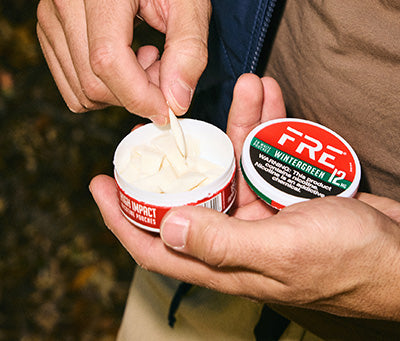Nicotine Pouches

How Moisture Levels Affect Your Dip Pouch Experience
Moisture levels in dip pouches aren't just a minor detail; they are the foundation of the entire dipping experience. The right balance of moisture affects everything from the feel of the pouch i...
Read more
Moisture Level in Dip Pouches: Why It Matters
Dip pouches are small, teabag-like packets containing ground tobacco or tobacco-free alternatives. They offer a convenient and cleaner way to enjoy dipping without the mess traditionally associate...
Read more

